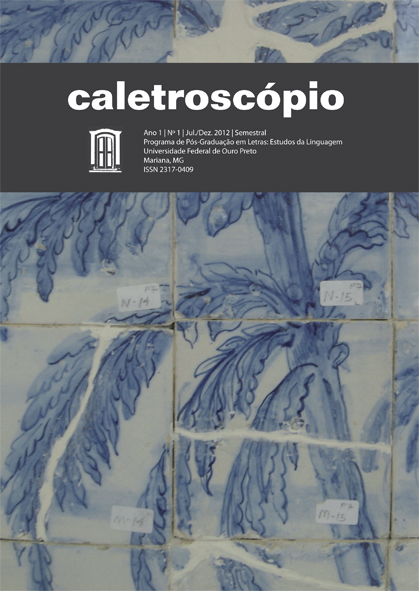The indigenous ethos in the literary memoirs of Daniel Munduruku
Keywords:
Ethos, Memory, Rhetoric, Indigenous Literature
Abstract
Adopting the theories postulated by Classical Rhetoric and Argumentation Discourse, this paper comes up with a reflection about the identity built by Daniel Munduruku in his memories ‘Meu vô Apolinário: um mergulho no rio da (minha) memória’ The indigenous writer assumes the world of classical rhetorical tradition and expose his ideas in order to change preconceived concepts about the visibility of indigenous people by non-indigenous brazilian society. Munduruku shows a new indigenous appearence resulting from the performance between previosly and shown ethos, working both: his ‘fame’ and a new person built in his book and captured by the reader. Adopting gender epidictic, the construction of the indigenous ethos is done in a apparently harmless way, lying hidden the purpose to recreate new values about the world’s indigenous peoples in Brazil.Downloads
Download data is not yet available.
Published
2012-12-03
Section
Artigos
The publication Caletroscopio shall retain for a period of three years all authorial rights for works accepted for publication: articles, reviews, translations, etc. Outside this restriction, these works are licenced through Licença Creative Commons-Atribuição-NãoComercial-SemDerivações 4.0 Internacional.
Upon expiry of this period, in the event that the author publishes the text, even when making alterations to the original, we would ask authors to include as a footnote, the information that a previous version of the article was published in the Revista Caletroscópio, citing the appropriate references.


